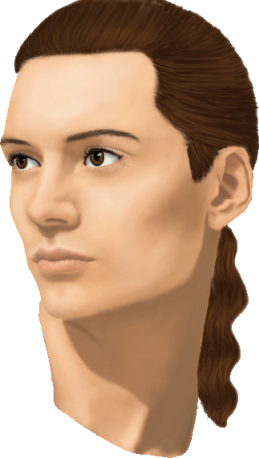Post by William Legan on Jan 5, 2012 10:54:55 GMT 1
Daily Life of Medieval Nobles and Lords in the Middle Ages
Middle Ages Feudalism was based on the exchange of land for military service. King William the Conqueror used the concept of feudalism to reward his Norman supporters with English lands for their help in the conquest of England. Daily life of Nobles and Lords during the Middle ages centred around their castles or Manors or fighting for the King during times of war. The daily life of nobles can be described as follows:
The daily life of nobles started at dawn
Mass would be heard and prayers would be made
The first meal of the day was breakfast
Lords and nobles would attend to business matters in relation to his land. Reports would be heard regarding estate crops, harvests and supplies. Finances - rents, taxes, customs and dues. The lord would also be expected to exercise his judicial powers over his vassals and peasants
Complaints and disputes regarding tenants would be settled, permission to marry etc
The daily life of the nobles would include political discussions and decisions
As the Medieval period progressed the culture changed becoming more refined and elegant. Time was spent on the arts - poetry, music etc
Weapon practise
Mid morning prayers and a meal
In the afternoon the daily life of nobles turned to hunting, hawking or inspecting the estate
Evening prayer and then supper in the Hall of the Castle or Manor House
After supper there might be some entertainment - music, dancing, jugglers, acrobats, jesters, etc
The time for bed was dictated by the time the Lord or Noble retired
Bedtime prayers
So ended the daily life of a noble during the Middle Ages.
Oversættelse til dansk kan sagtens laves hvis det er ønsket?
Middle Ages Feudalism was based on the exchange of land for military service. King William the Conqueror used the concept of feudalism to reward his Norman supporters with English lands for their help in the conquest of England. Daily life of Nobles and Lords during the Middle ages centred around their castles or Manors or fighting for the King during times of war. The daily life of nobles can be described as follows:
The daily life of nobles started at dawn
Mass would be heard and prayers would be made
The first meal of the day was breakfast
Lords and nobles would attend to business matters in relation to his land. Reports would be heard regarding estate crops, harvests and supplies. Finances - rents, taxes, customs and dues. The lord would also be expected to exercise his judicial powers over his vassals and peasants
Complaints and disputes regarding tenants would be settled, permission to marry etc
The daily life of the nobles would include political discussions and decisions
As the Medieval period progressed the culture changed becoming more refined and elegant. Time was spent on the arts - poetry, music etc
Weapon practise
Mid morning prayers and a meal
In the afternoon the daily life of nobles turned to hunting, hawking or inspecting the estate
Evening prayer and then supper in the Hall of the Castle or Manor House
After supper there might be some entertainment - music, dancing, jugglers, acrobats, jesters, etc
The time for bed was dictated by the time the Lord or Noble retired
Bedtime prayers
So ended the daily life of a noble during the Middle Ages.
Oversættelse til dansk kan sagtens laves hvis det er ønsket?


